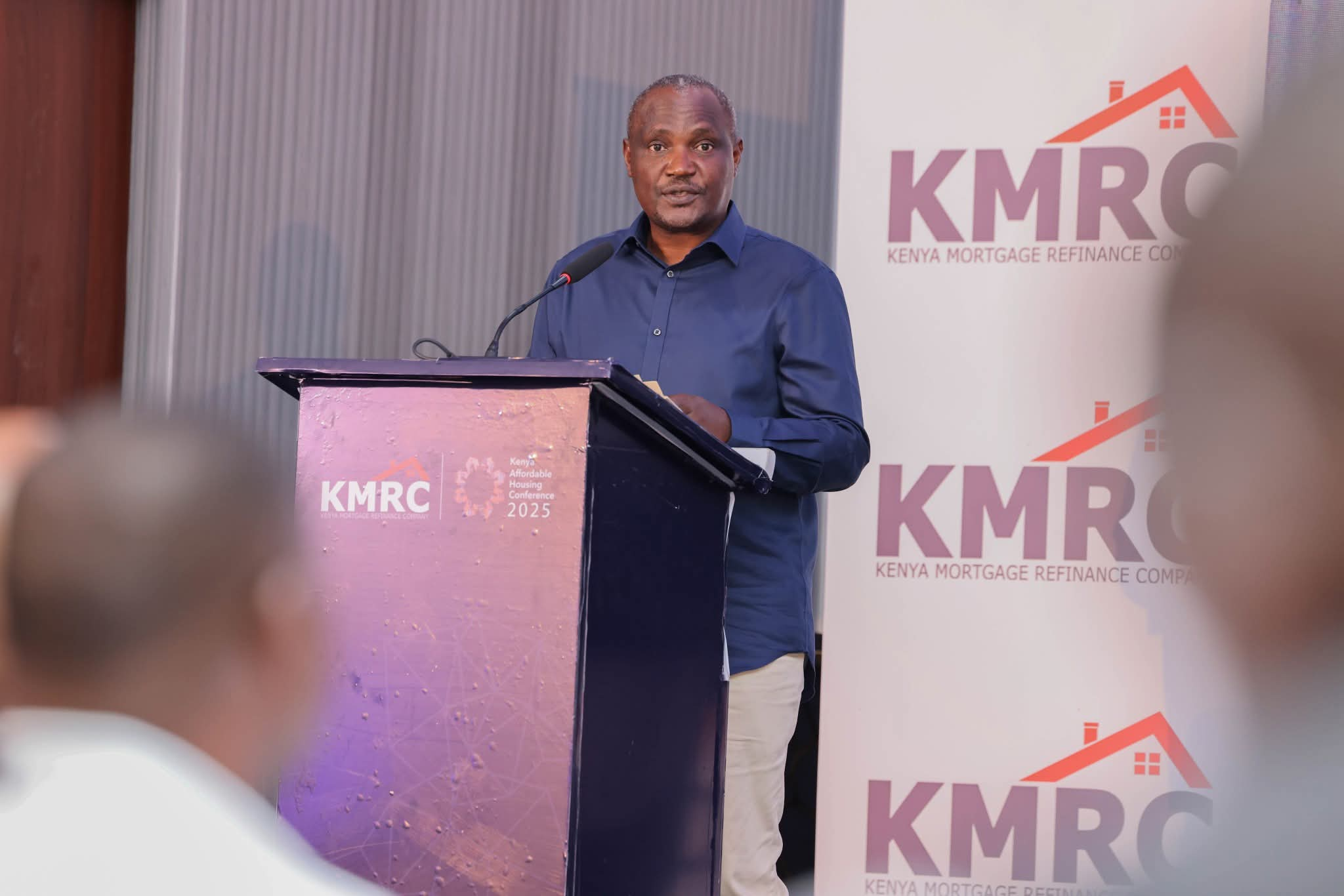
 Treasury CS John Mbadi speaking during the 4th Kenya Affordable Housing Conference (KAHC) in Kisumu
Treasury CS John Mbadi speaking during the 4th Kenya Affordable Housing Conference (KAHC) in KisumuTreasury Cabinet Secretary John Mbadi Ng’ongo has reaffirmed the government’s commitment to revolutionising Kenya’s housing sector through sustainable financing models and inclusive strategies that prioritize the ordinary mwananchi.
Speaking on Friday during the 4th Kenya Affordable Housing Conference (KAHC) in Kisumu, Mbadi emphasized that the Bottom-up Economic Transformation Agenda (BETA), spearheaded by the Kenya Kwanza administration, places housing at the heart of national development.
“This year’s theme, ‘Revolutionising Housing: Innovation Meets Sustainability’, aligns perfectly with BETA, which seeks to improve the living standards of Kenyans from the grassroots. KMRC continues to play a key role in actualizing this vision,” Mbadi said.
The Cabinet Secretary highlighted the rapid pace of urbanisation in Kenya, currently at 4.3 per cent per annum, and noted that 70% of urban households still rent homes, many in informal or insecure settings.
Only 2 per cent of households have mortgages, and 3 per cent have housing-related loans, according to the 2023/24 Kenya Housing Survey.
“This calls for innovative and accessible financial solutions to bridge the housing gap,” he said, adding that the National Treasury had significantly boosted support for the sector.
In the current financial year, the government has set aside Sh 120.2 billion for the housing and settlement sector.
Additionally, the Finance Act 2025 introduced a targeted annual tax relief of up to Sh360,000 for incremental home construction loans, acknowledging that most Kenyans build homes progressively rather than all at once.
Mbadi said these fiscal moves must be backed by broader financial innovation.
“Beyond budgetary allocations, we must deploy catalytic tools such as bonds, mortgage-backed securities, and blended finance models to unlock resources and expand access,” he noted.
He lauded the Kenya Mortgage Refinance Company (KMRC) for successfully issuing a Sh 1.4 billion domestic bond in 2022 as part of its Sh 10.5 billion Medium-Term Note program.
This, he said, marked a new chapter in deepening private capital market participation in the housing sector.
The Treasury has also mobilized USD 300 million in concessional funds from the World Bank and African Development Bank, which were on-lent to KMRC.
Combined with bond proceeds, these resources allowed KMRC to refinance mortgages at single-digit interest rates.
“Looking ahead, we are capitalizing the Kenya Mortgage Guarantee Trust (KMGT) with €4 million to help de-risk lending to informal sector workers. These credit guarantees are vital for ensuring underserved Kenyans can access dignified housing,” Mbadi said.
The CS revealed that KMRC had refinanced over 4,600 home loans across 39 counties, totaling Sh 21.7 billion.
Impressively, 48.3% of these beneficiaries are women, directly impacting more than 18,000 household members and creating about 11,500 jobs.
He also praised KMRC’s ongoing financial literacy initiatives and capacity-building programs for lenders and stakeholders, which have boosted awareness and uptake of affordable home loans countrywide.
To sustain momentum on the demand side, Mbadi pledged to mobilize additional concessional funding from the World Bank to enable KMRC to expand its refinancing capacity.
“The journey toward sustainable and inclusive housing in Kenya demands bold vision and pragmatic financing."
Mbadi added, "We must continue to pair public investment with private innovation, mobilize capital markets alongside fiscal levers, and bridge traditional lending gaps through targeted guarantees and incentives."
The 4th Kenya Affordable Housing Conference is being attended by government officials, KMRC leadership, international partners from the East African Community, India, Pakistan, Malaysia, and other housing stakeholders.
“Let us continue working together to deliver not just houses, but dignified homes for every Kenyan,” he concluded.
















